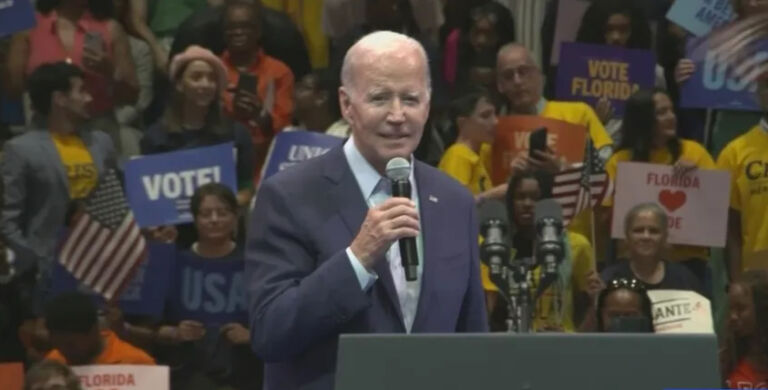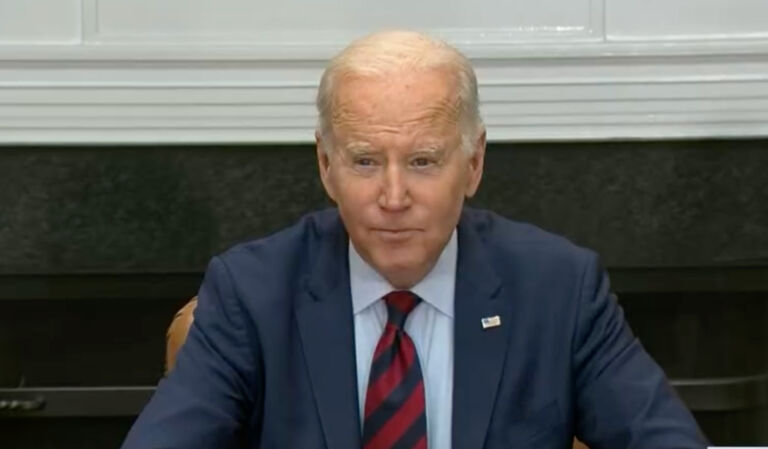- Inflation is a deeply regressive tax, impacting all Americans, especially low-income households
- While we’re all paying the tax, none of us were allowed to vote on it
- Bureaucrats being empowered with so much economic control is a threat to democracy
No politician ran for office promising to raise the cost of living, stealing the value of dollars you had previously earned.
None promised to implement a wildly progressive tax, one that impacts the poor disproportionately.
Indeed, on the campaign trail candidate Joe Biden promised “no new taxes” on anyone earning under $400,000 in income.
Nevertheless, here we are.
Inflation in April increased by 8.3% on an annualized basis, continuing escalated rates not seen in 40 years. The cost of gas and groceries, staples of working households, increased even more rapidly.
All Americans are impacted by the inflation tax, especially middle- and low-income households. The inflation tax is fundamentally impacting families across the nation and is reshaping the economy, likely helping to usher in the coming recession.
Yet no American citizen had the opportunity to vote on this household budget–busting, economy-changing tax. At least actual income tax rate increases are voted upon by elected officials.
Inflation is also an assault on our freedom, as it destroys the value of our property; i.e., our money and savings.
So if it’s not an explicit policy that was voted on by the people or their elected officials, what, or who, is responsible for the inflation tax?
As Milton Friedman so plainly put it: “Inflation is always and everywhere a monetary phenomenon.”
Inflation, Friedman and many others have argued, is the result of the Federal Reserve creating money “out of thin air.”
Indeed, as the late economist Henry Hazlitt declared: “Inflation is an increase in the quantity of money and credit. Its chief consequence is soaring prices.”
And who is responsible for the quantity of money in the economy? The Federal Reserve.
The Fed is the nation’s central bank, and while nominally considered a “private” entity, it is unmistakably a government creation headed by political appointees.
It becomes implausible to argue we have a free-market economy when unelected bureaucrats at the Fed control the supply of the commodity involved in virtually every transaction: money. They also make decisions that can impact the budgets of every household in the country and transform the structure of the economy. Indeed, billions’ worth of wealth can be erased simply in response to the words of one unelected bureaucrat — the chairman of the Fed.
How do those that wail about “threats to democracy” turn a blind eye to, and often defend, such an undemocratic institution? Our rulers supposedly acquire their authority from the consent of the governed, but which citizens get to consent to the Federal Reserve’s decisions about the quantity of money?
To be fair, Federal Reserve money creation is often the result of massive government deficits, as the Fed buys government debt with newly created money. And deficits are a matter of fiscal policy determined by our elected representatives.
Nevertheless, it is quite the leap to then say that the people consented to inflation because a majority of people voting elected politicians they suspected would spend a lot and increase deficits. Very few can make the connection between deficit spending and inflation.
As John Maynard Keynes once wrote about inflation: “The process engages all the hidden forces in economic law on the side of destruction, and does it in a manner not one man in a million is able to diagnose.”
Keynes was dead wrong about virtually everything else, but he gets this absolutely right.
The inflation tax is having an outsized impact on households and the economy and is particularly crushing to low-income households. In the April Civitas opinion poll, inflation ranked as the top policy concern among likely North Carolina voters. But voters had no say over the inflation tax.The inflation tax is a deeply regressive and harmful policy that has been imposed upon Americans without our consent. Whatever happened to “no taxation without representation”?


